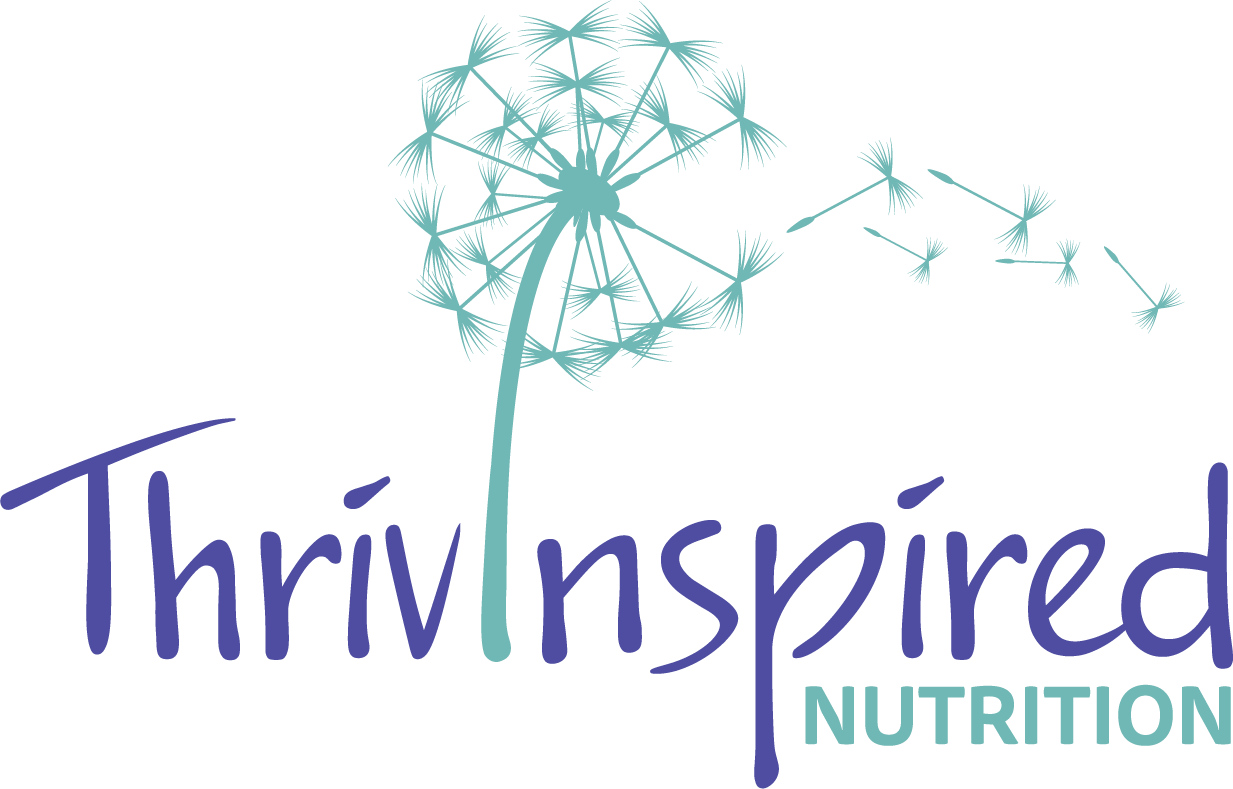How to Make Meal Prep Fit Your Life (& Not the Other Way Around)
/Over the past few months, I’ve found myself having a lot of conversations about meal prepping with clients. Something that struck me as a common experience when talking with folks was that most felt meal prepping was the key to eating “healthier” and making the “right” food choices. The other thing I noticed was that meal prep in general felt for many like a huge (and daunting) undertaking due to the time it took, and because it brought them little joy when they were actually doing it. And most, if not all, felt their inconsistency with meal prep was a shortcoming of theirs and didn’t question whether the ways we’ve been taught to think about and do meal prep were maybe part of the problem.
This all felt eerily familiar to a diet mentality, even though we weren’t talking about a specific diet. And just like a diet that has rigid rules that don’t take into account our unique needs and circumstances, continuing to approach meal prep in the way they were was ultimately not leading to a calmer relationship with food. Instead, it was leading to feelings of guilt. Guilt for not wanting to spend free time looking up recipes, guilt for eating something other than what they had prepared, and guilt for not keeping up with a weekly meal prep routine because of life getting in the way.
My own perspective on meal prepping has changed over the years. My traditional training as a dietitian and interest in the fitness world helped formulate what I thought was the “right” way to meal prep. This involved looking up “healthy” recipes, compiling my grocery list, shopping for ingredients, preparing things from scratch, portioning strategically to have multiple days worth of meals, eating the same thing for several days in a row, rinse and repeat. Many of the meals also tended to be high volume and lower in energy (think large salad), which left me feeling unsatisfied.
I no longer subscribe to this formula for meal prep because of the dichotomous thinking it reinforces, and because my idea of what constitutes a health supportive meal has changed (to be more flexible). I’ve also started to utilize more convenience foods like premade dressings and pre-marinated proteins, which have made my life easier and still allow me to get my energy and nutrition needs met.
While meal prepping has its benefits, like saving time and money, if it becomes a justification for not honoring your appetite cues or causes you to feel more preoccupied with food and eating, I encourage you to get curious about it and consider the ways in which it may not be serving you.
Signs that your current approach to meal prep may be interfering with having a more peaceful relationship with food:
You tend to prepare the same “healthy” foods and meals to eat during the week because that’s what feels comfortable or safe.
Why it interferes: If prepping meals is keeping you from increasing the variety of foods in your diet, or having an adequate amount of food, it may be a justification for being rigid and restrictive with food.
You find yourself often not wanting to eat what you prepared because it isn’t appealing or appetizing but you eat it anyway.
Why it interferes: There will be times when you have to eat something that isn’t your first choice, but consistently eating something unsatisfying because it’s what you think you “should” eat can lead to seeking out that satisfaction in other ways, for example, continuing to snack once the meal is over or eating past fullness at a future meal.
You find that you are still hungry after eating what you’ve prepared but don’t feel it’s OK to add more or eat something else.
Why it interferes: If you’re consistently feeling hungry soon after eating a meal or snack, that may be an indication that the combination of foods or amount is not enough to carry you through until the next time you’ll eat. Not eating beyond what was prepped because that “should” be enough keeps you from honoring for hunger cues.
You dread the process in which you meal prep but make yourself do it anyway.
Why it interferes: While planning and preparing meals can feel like a chore some days, if your meal prep process has you wishing you could be doing anything else, it is likely not going to be very sustainable.
You don’t feel you can deviate from your meal prep plan out of fear of this impacting your “health”.
Why it interferes: If the idea of eating something other than what you made feels difficult because you worry it won’t be as “healthy”, meal prep is likely reinforcing the idea of there being “good” and “bad” foods.
But it does not have to be this way! Meal prepping should be whatever you need it to be in order for it to work for you.
Factors to consider when it comes to figuring out how to make meal prep work for you include things like time that you can (and want) to dedicate towards this, your budget, what your meal prep needs are, your skill and comfort cooking, and your access to a kitchen or kitchen appliances. Unlike the diet mentality, meal prepping can and should be flexible and adapted to our needs, which likely will change over time.
Below are some meal prepping tips and strategies to support a more peaceful relationship with food:
Be realistic with yourself about how much prep you can (and want) to do.
If spending a few hours on a weekend cooking for the week sounds like a nice way to spend part of your Sunday, that’s great! If not, that’s absolutely OK too. Prepping one meal to eat a few times over the week, or just prepping some components of meals, like a large batch of a grain or marinating and cooking several portions of a protein, will save you time during the week.
If taking time out of your day to meal prep for the week isn’t realistic, consider making enough of a meal to have leftovers as part of your meal prep routine.
You can also stretch leftovers further by combining them with other components to create a meal, for example, adding leftover veggies to eggs for an omelet, or putting leftover protein in a wrap or grain bowl.
Keep staples on hand for go-to meals that you know you like and are easy to throw together.
Build in flexibility to your meal prep by keeping some items on hand that can be turned into a tasty meal relatively quickly. These can be your go-to on nights when you don’t want leftovers again, or if you don’t have the bandwidth to spend more than 20-30 minutes cooking a meal. In addition to the 3 quick, easy, and nutritious processed food inspired meals Dana shares in this blog post, other quick nutritious meal ideas include breakfast for dinner, boxed mac and cheese with added veggies, or a quesadilla with your choice of fillings.
Make a grocery list.
While this is technically part of the planning process, making a list of what you’ll need for the meals you plan to have for the week can be the first step to saving time, money, and stress at the grocery store. Keeping the list on your phone will probably mean you are less likely to forget it, and instead of re-creating the list each time you can update it while keeping staple items on there.
If it works with your budget, consider purchasing premade or pre-prepared ingredients to make meal prep even easier.
This includes things like pre-chopped vegetables, bagged salads, rotisserie chicken and other pre cooked proteins, premade sauces, marinades, dips, and dressings.
Frozen and canned fruits and vegetables have a longer shelf life and are also nutritious. There can be a difference in texture between fresh and frozen or canned produce which is something to be considered, however, you may find that for some recipes, either will work just fine.
Consider ways to make meal prep more enjoyable.
Since meal prep can feel like a chore (I know I feel this way sometimes), consider what might make it feel more enjoyable. While you prep, could you listen to your favorite music or podcast? Wear your comfiest pjs? Catch up with friends or family over the phone?
While this isn’t an exhaustive list, we hope you find some of these suggestions helpful. If meal prep makes feeding yourself easier and is not keeping you from honoring your appetite cues and practicing flexibility with food, you may benefit from making it a part of your routine.
Interested in receiving more support with having a peaceful relationship with food while also honoring your body’s energy and nutrition needs?
Contact Us to schedule a FREE discovery call and see if working together is a good fit for you! We see clients in Vermont, Florida, and several other states.


